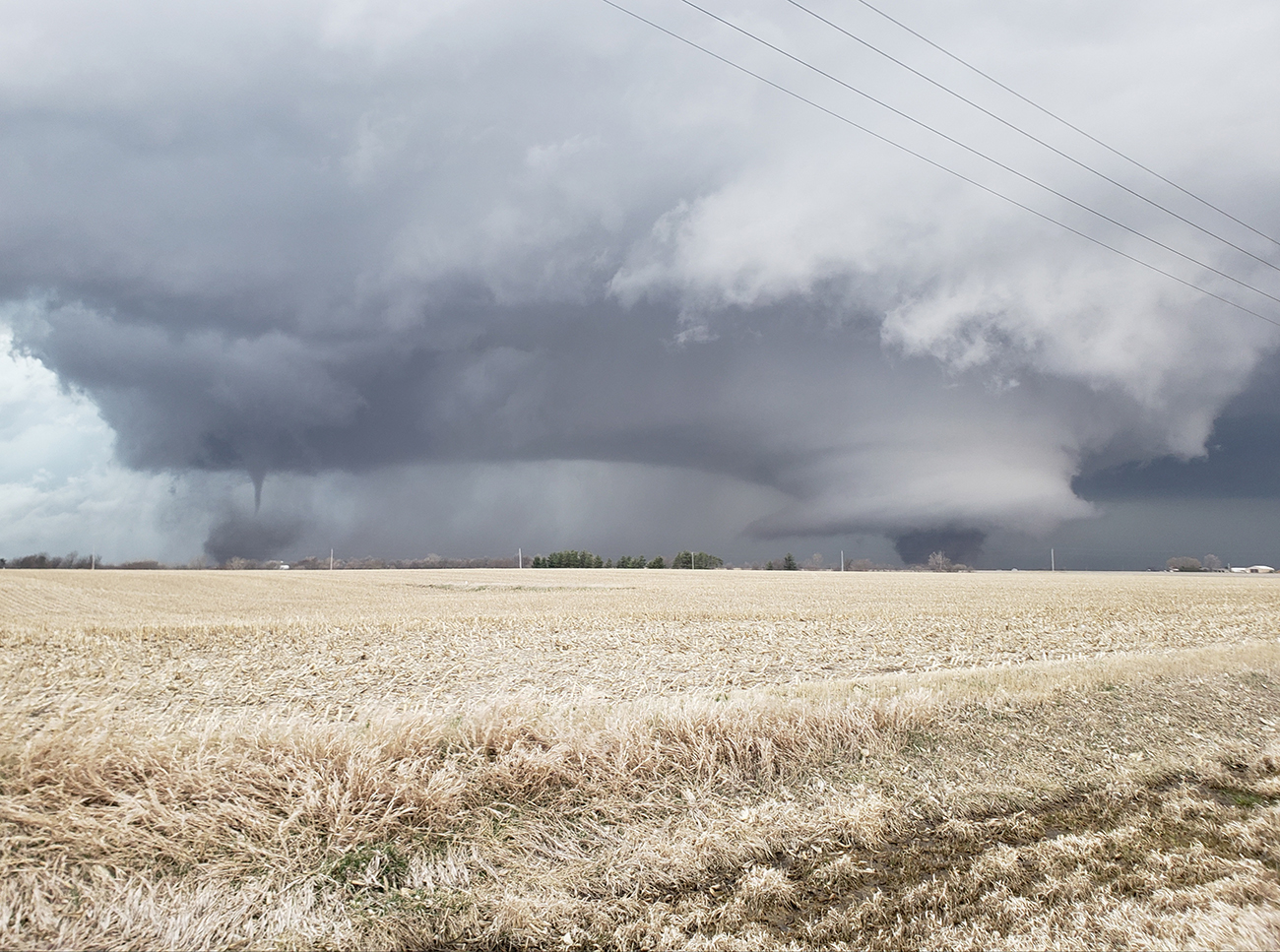The emphasis of the Bachelor of Science degree program in Meteorology is on developing a broad understanding of the fundamental physical and dynamic processes governing the motions and behavior of the atmosphere as a fluid system. Basic courses in chemistry, physics, and mathematics are prerequisites to the meteorology program and are considered the foundation courses on which the meteorology program is built.
Each student is encouraged to develop a strong minor or areas of emphasis to complement his or her major in meteorology. Disciplines commonly selected (professional goal in parentheses) are: Agronomy (agricultural meteorology), Chemical Engineering (private consulting), Computer Science (graduate school), Education (secondary teaching), Geology or Chemistry (environmental science), Mathematics (graduate school), Physics (graduate school), Speech (radio, TV), or Statistics (climatology).
The Meteorology curriculum is divided into a Pre-Meteorology program and a Professional Meteorology program. A grade of C or better (not C-) is required in the following courses to meet minimum graduation requirements for Bachelor of Science degree in meteorology: Mteor 2060 and 3010.

